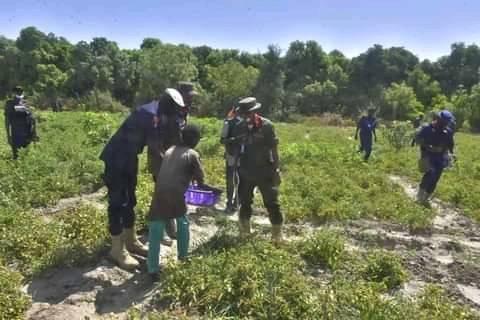Farmers in Nasarawa Local Government Area of Nasarawa State have expressed concerns that excessive rainfall could damage crops, reduce yields, and aggravate food insecurity across the country.
The farmers told newsmen in separate interviews in Nasarawa on Tuesday.
The News Agency of Nigeria (NAN) reports that climate change and variability, which are affecting weather patterns and resulting in continuous rainfall in Nigeria, have raised fears among farmers and agricultural experts.
They worry that ongoing rainfall could impact harvests and exacerbate food insecurity across the country.
A farmer in Nasarawa Local Government Area, Dr. Tama Shawulu, noted that excessive rainfall could deplete essential nutrients from the soil, hinder plant growth, and ultimately destroy crops.
“The rain keeps falling, and you cannot question God’s will. We are seriously concerned because while some crops thrive with extended rainfall, others do not.
“We don’t want to lose crops that prefer moderate or controlled rainfall due to the excessive rain,” he said.
Another farmer, Azaki Yusuf, agreed and added that if the excessive rainfall continues, some crops will be damaged, while others will yield poorly.
“The issue is that we planted sesame, and if this excessive rain persists, it will ruin the sesame and other crops like beans, which do not tolerate too much rain. With this situation, there will be food shortages in the country,” he said.
Mr. Amos Audi also expressed concerns, warning that continuous heavy rainfall could damage crops in the fields, with some crops producing poor yields.
He explained that prolonged rain affects crop selection, causing delays in planting alternative crops, and noted that flooding could wash away soil nutrients, further damaging crop yields.
A Professor of Agronomy and Soil Science at Nasarawa State University, Keffi, Prof. Olumuyiwa Jaiyeoba, attributed the continuous rainfall to climate change and seasonal variations that are difficult to predict statistically.
He warned that current rainfall patterns could worsen current food crisis, already exacerbated by insurgency, farmer-herder conflicts, and other criminal activities, especially in northern part of the country.(NAN)


